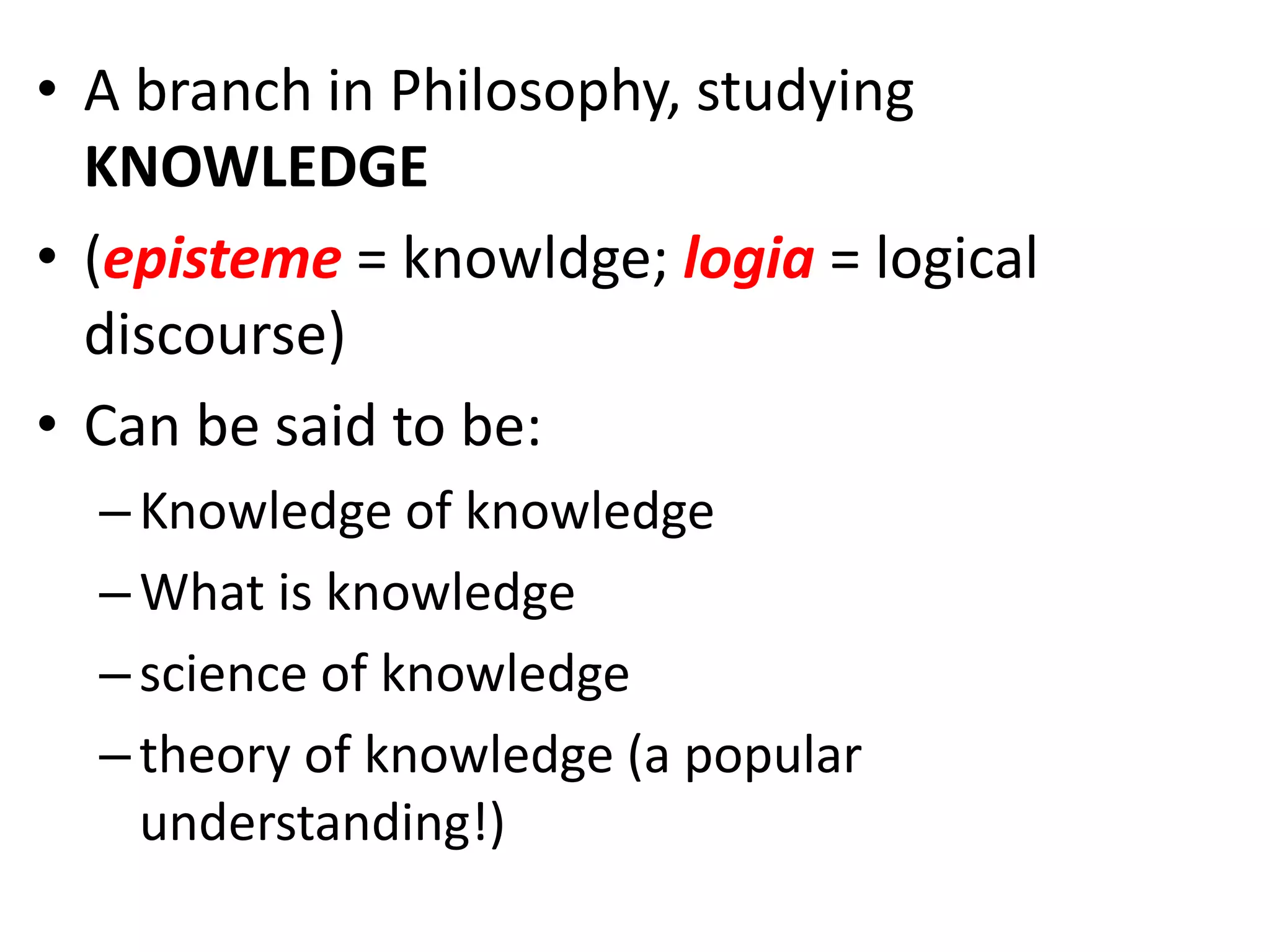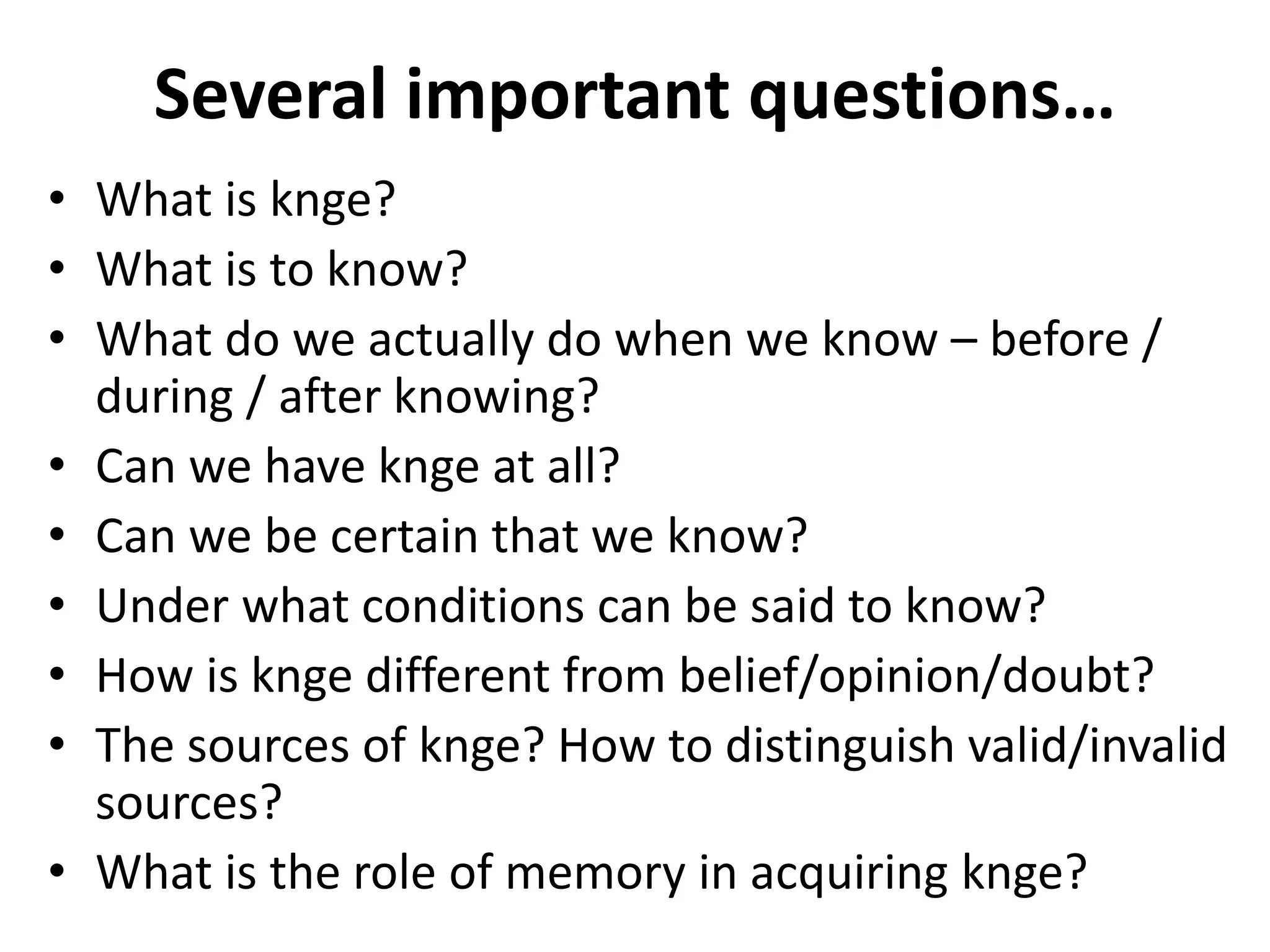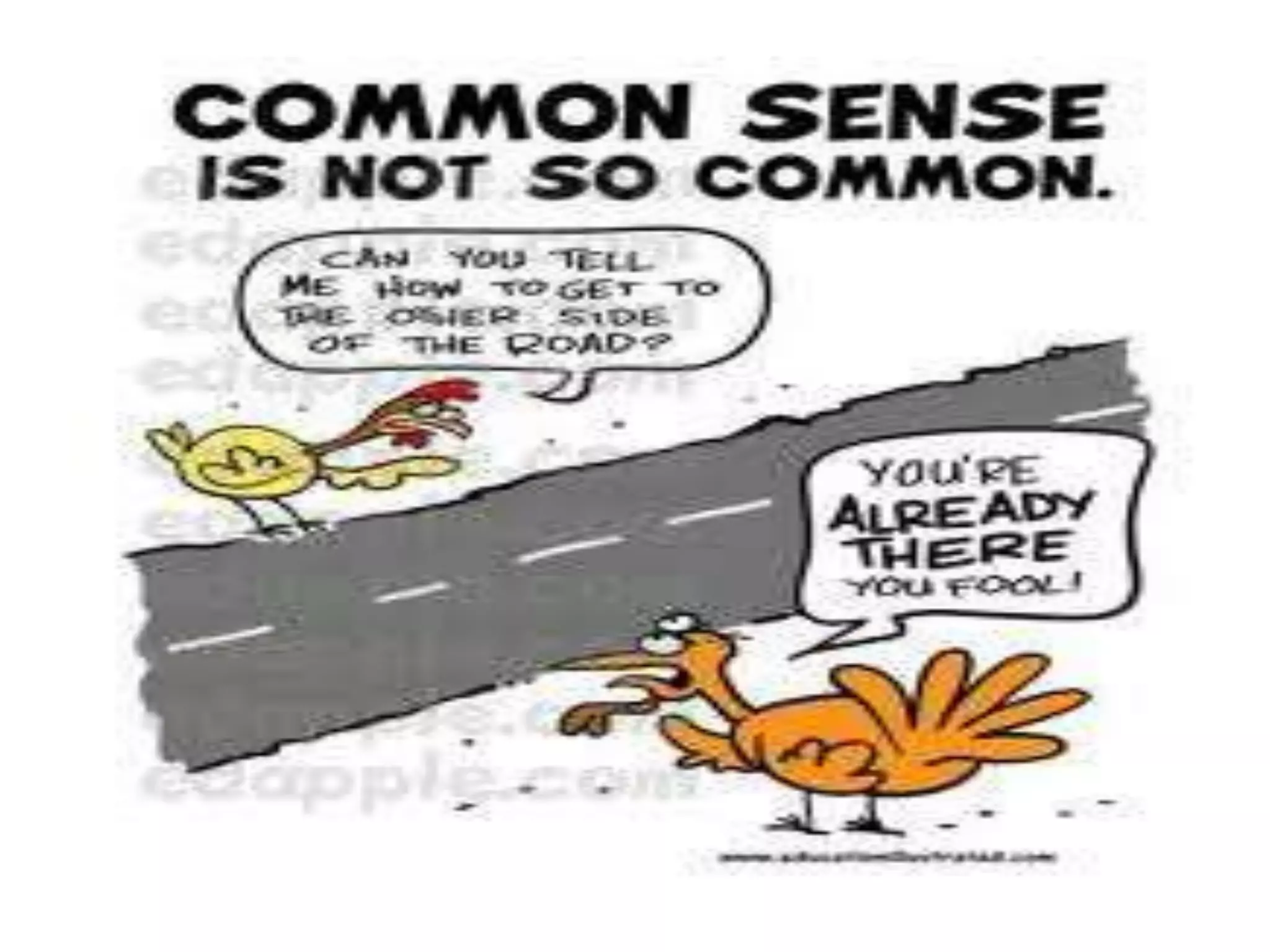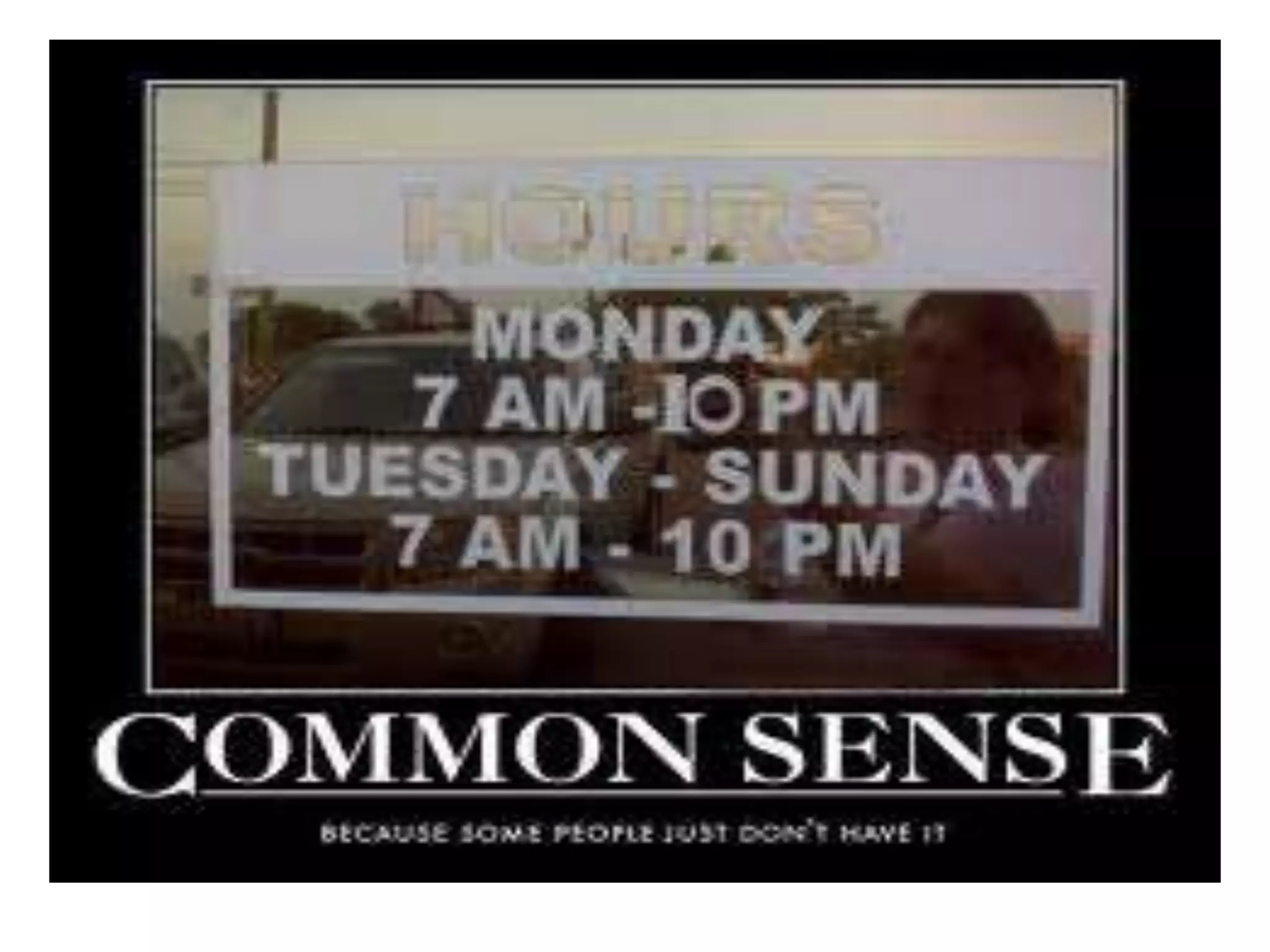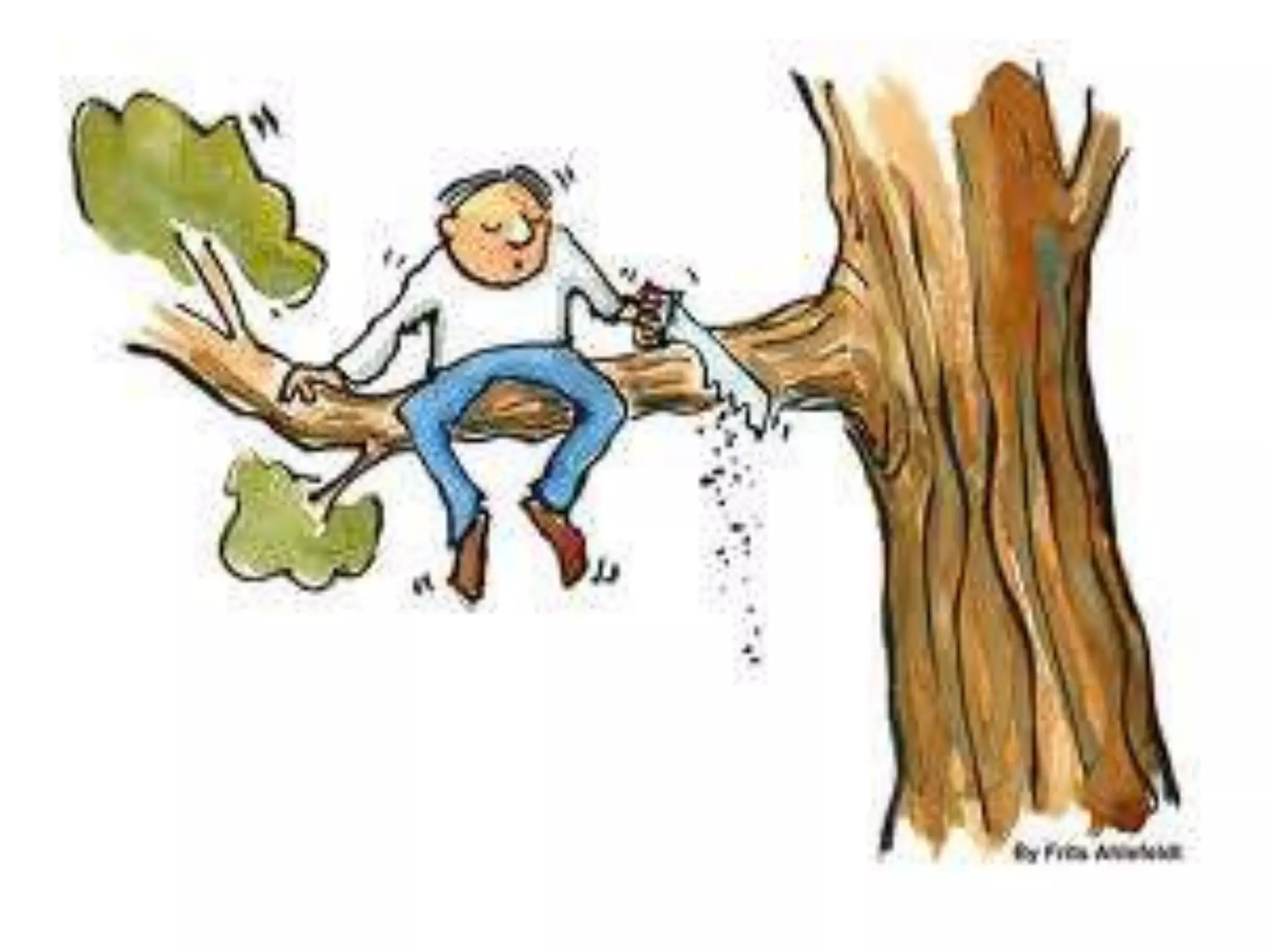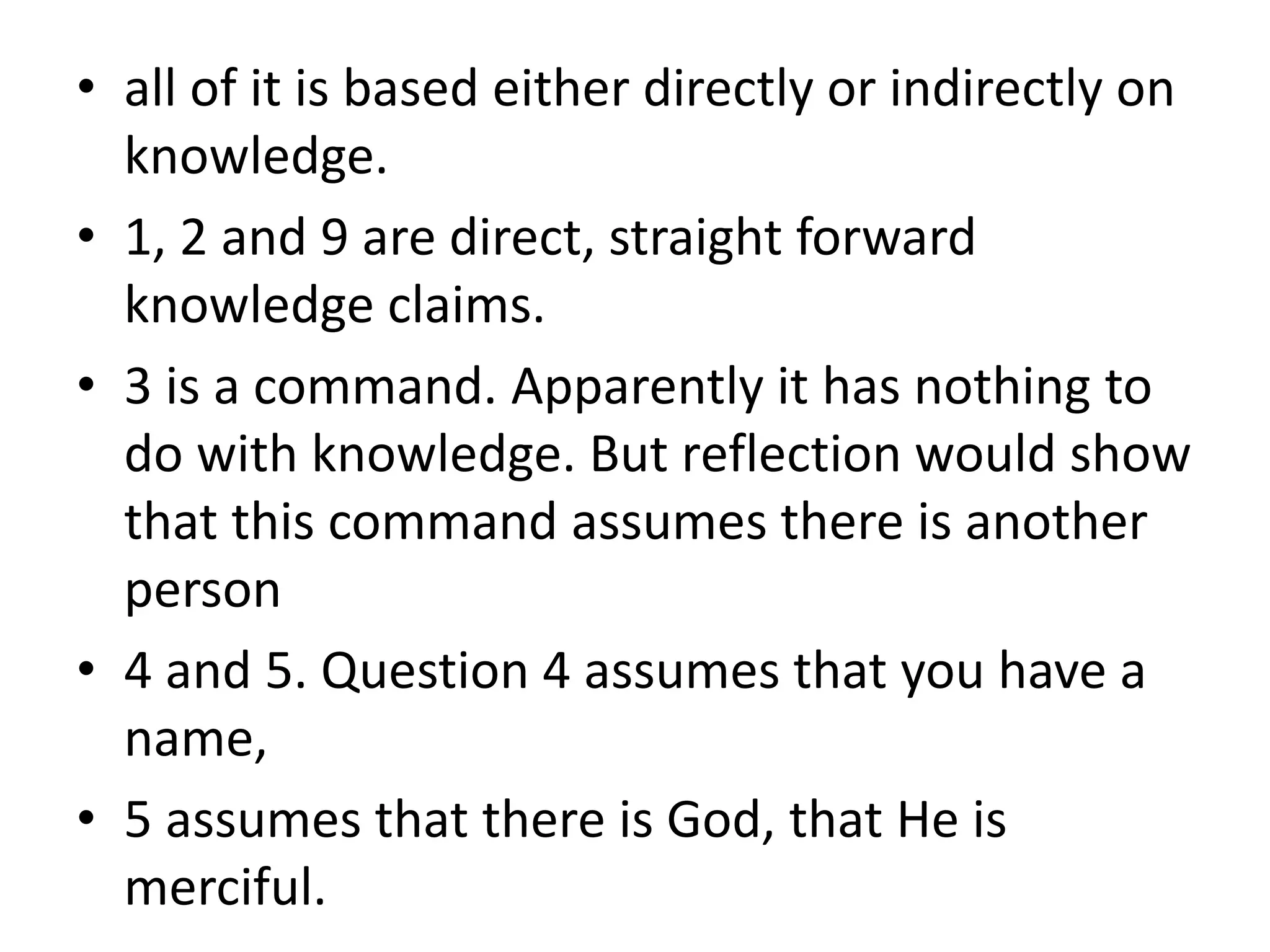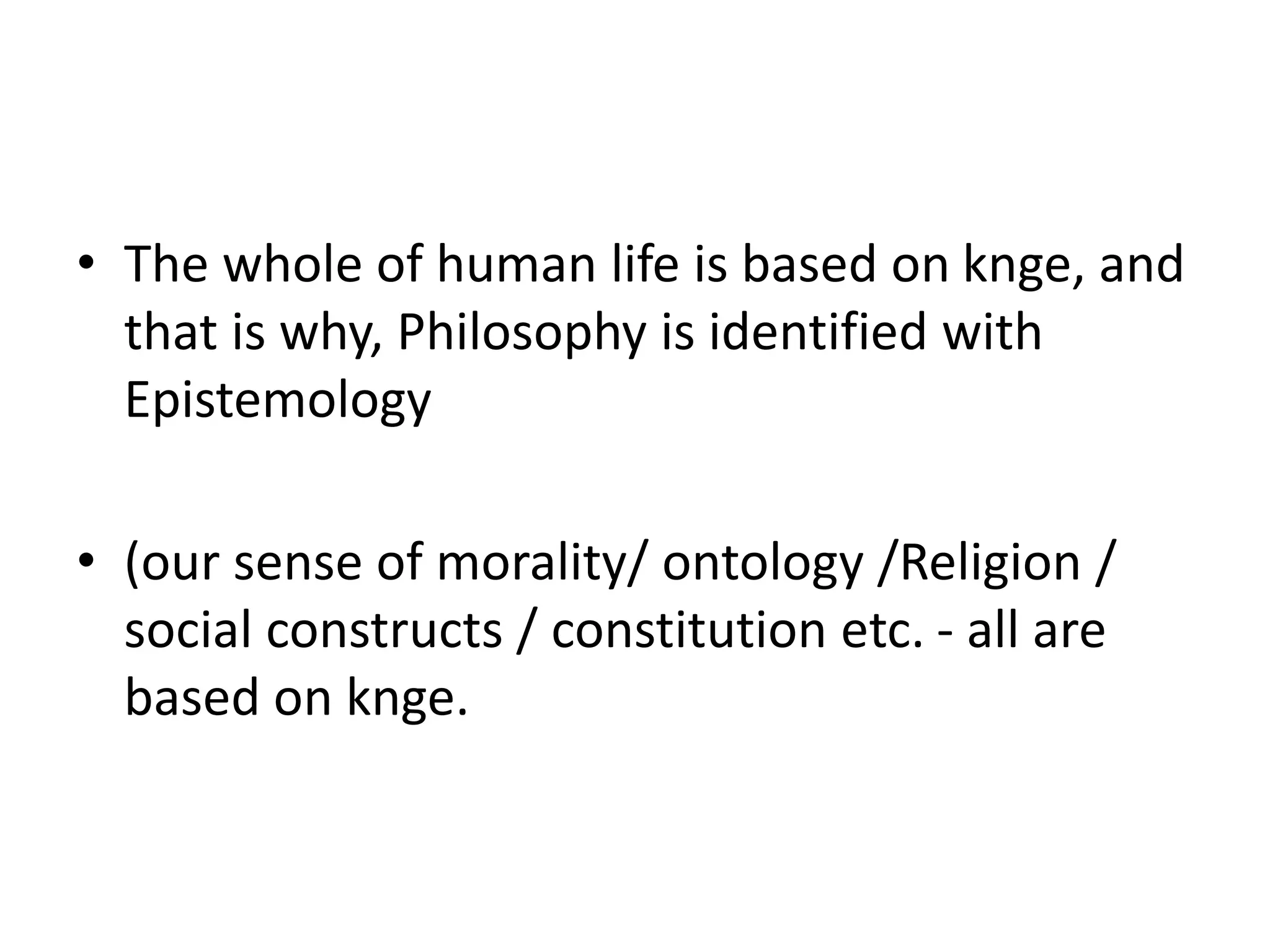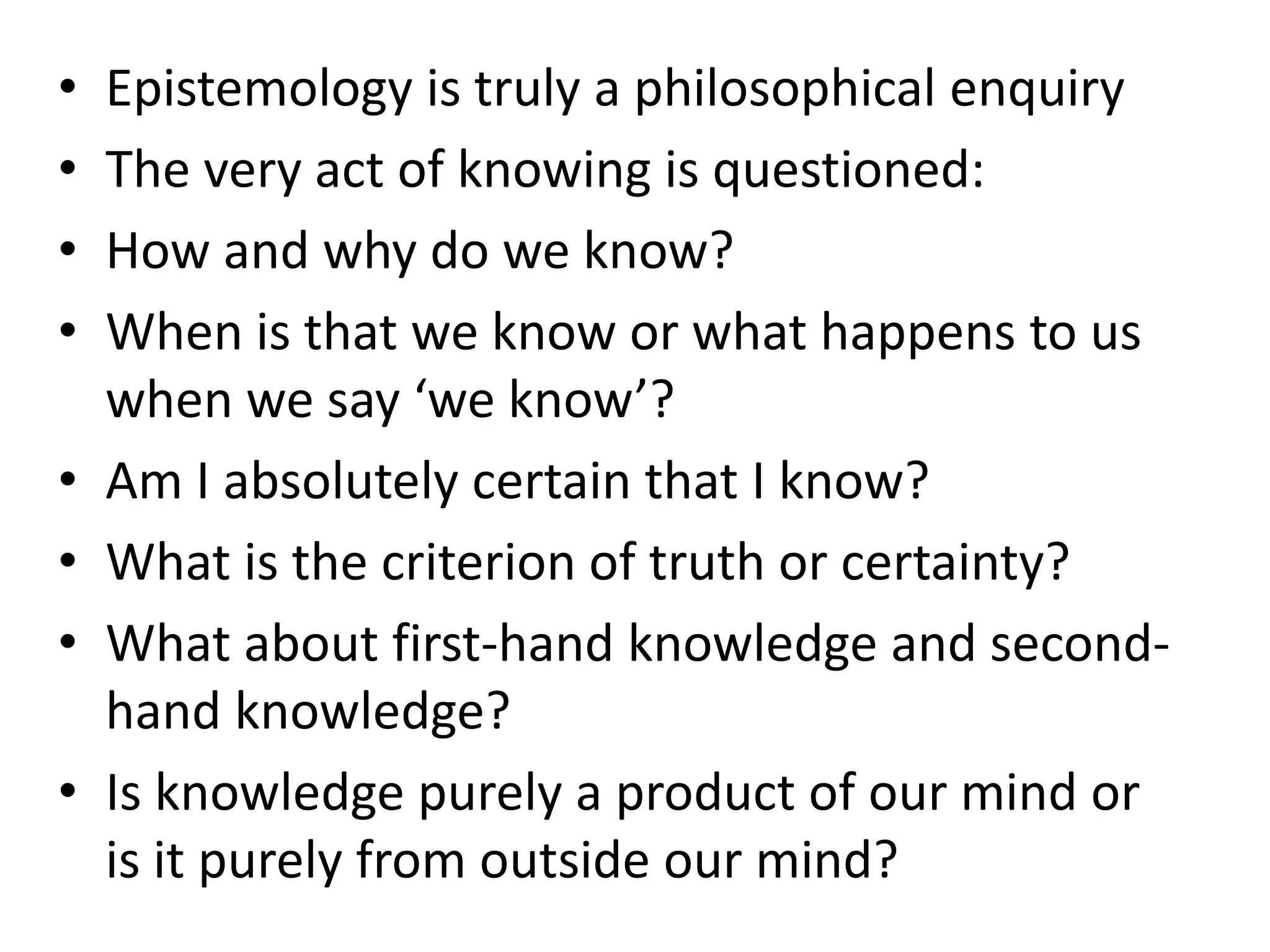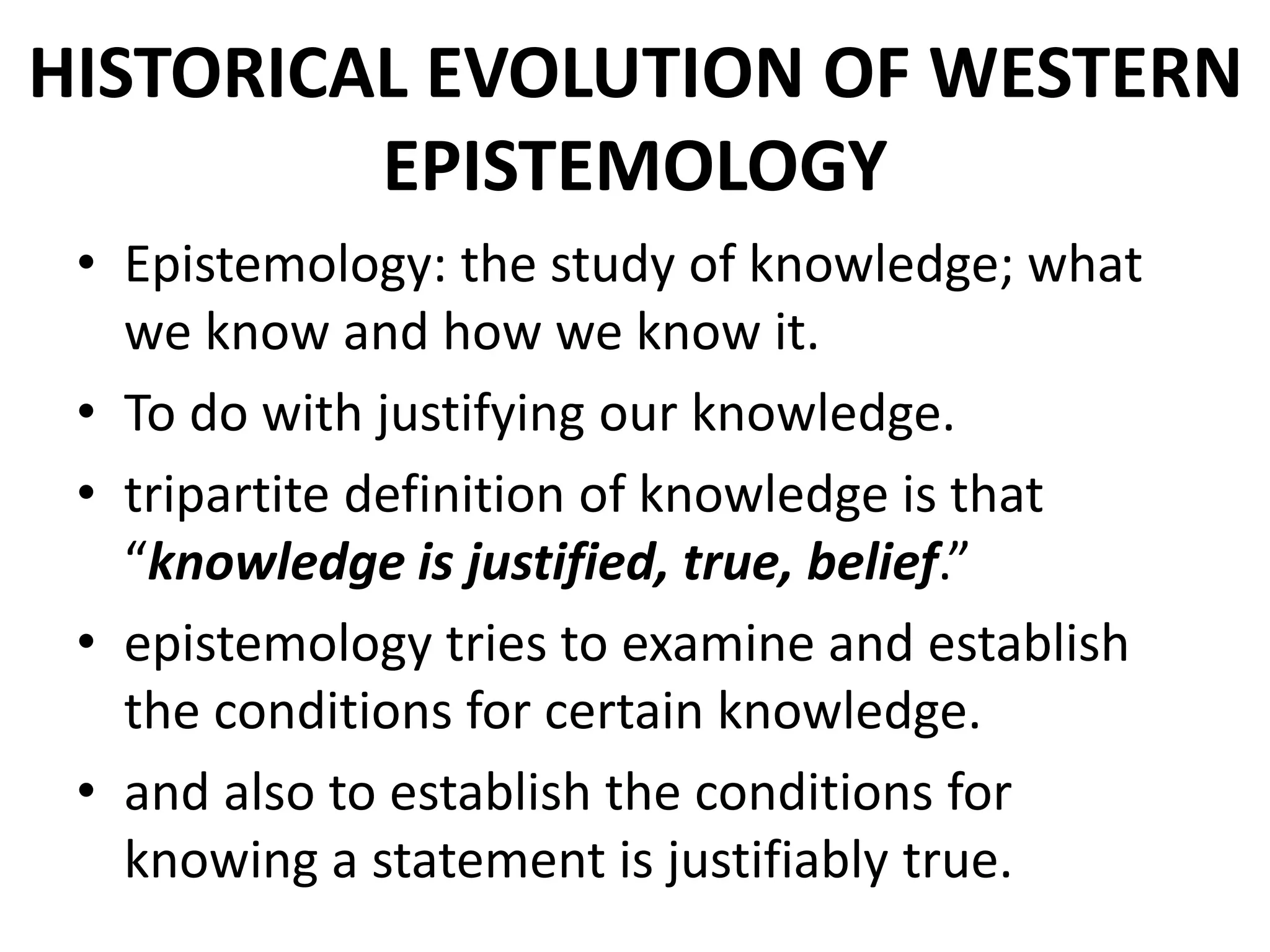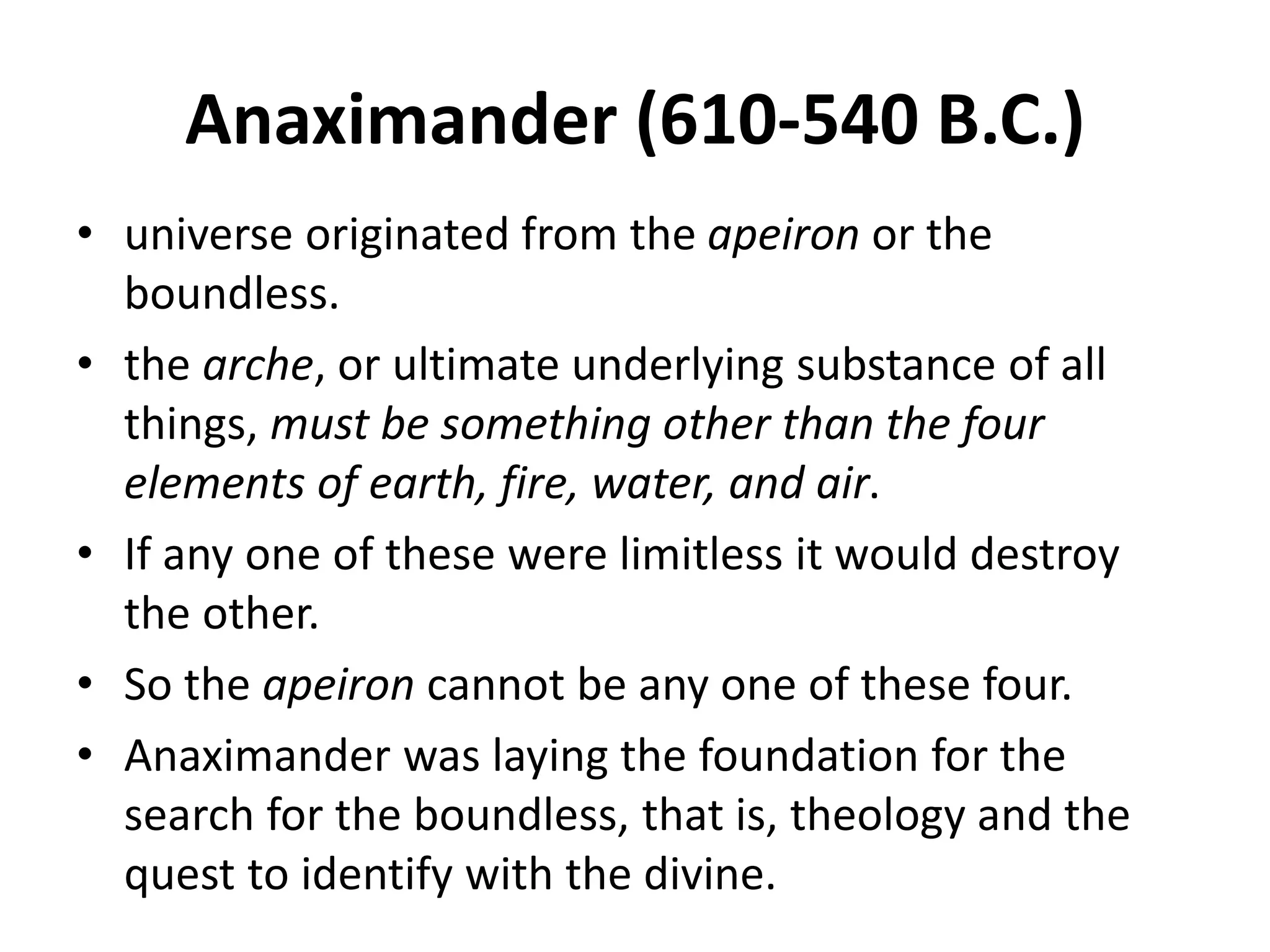This document provides an introduction to epistemology, the branch of philosophy concerned with the nature and scope of knowledge. It discusses key questions in epistemology such as what knowledge is, the difference between knowledge and belief, and the historical evolution of theories of knowledge in Western philosophy. Specifically, it examines the contributions of early Greek philosophers like Thales, Anaximander, Pythagoras, Heraclitus, and Parmenides to the development of epistemological thought.

